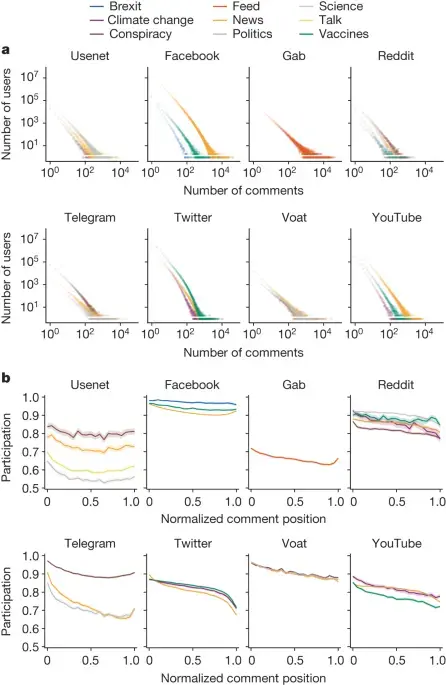Abstract
Growing concern surrounds the impact of social media platforms on public discourse and their influence on social dynamic, especially in the context of toxicity. Here, to better understand these phenomena, we use a comparative approach to isolate human behavioural patterns across multiple social media platforms. In particular, we analyse conversations in different online communities, focusing on identifying consistent patterns of toxic content. Drawing from an extensive dataset that spans eight platforms over 34 years—from Usenet to contemporary social media—our findings show consistent conversation patterns and user behaviour, irrespective of the platform, topic or time. Notably, although long conversations consistently exhibit higher toxicity, toxic language does not invariably discourage people from participating in a conversation, and toxicity does not necessarily escalate as discussions evolve. Our analysis suggests that debates and contrasting sentiments among users significantly contribute to more intense and hostile discussions. Moreover, the persistence of these patterns across three decades, despite changes in platforms and societal norms, underscores the pivotal role of human behaviour in shaping online discourse.
Lmao at Facebook, Reddit, and Twitter being similar toxicity. Lmfao at YouTube somehow looking less toxic than those three. And also a strong “holy shit” for Gab, Telegram and Voat blowing Reddit, Twitter, and Facebook out of the water.
I liked the Usenet and Reddit similarity. They both seamed to have more length stable patterns then the others. Also similar platforms in a lot of ways. Usenet ironically was the one that showed some declining toxicity with conversation length.
Academic research doesn’t (can’t) move at the speed of social media shifts: by the time they take Insta and TikTok into account, the world will be onto something new (hopefully).



